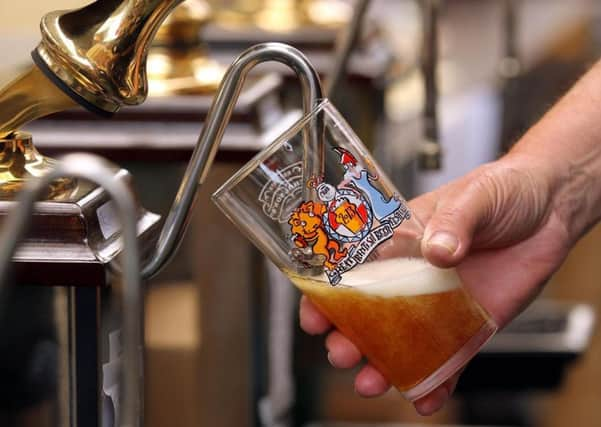24-hour drinking laws had no effect on crime or health, think tank claims


Free market researchers at the Institute of Economic Affairs today seek to rubbish claims the that 24-hour drinking laws introduced by Tony Blair’s Labour government were a mistake.
The think tank says there was no noticeable rise in alcohol abuse or street crime as a result of the decision to let pubs and clubs stay open longer.
Advertisement
Hide AdAdvertisement
Hide AdThe findings stand at odds with repeated clams that alcohol abuse is costing the NHS at least £5bn a year, a figure Simon Stevens, chief executive of NHS England, this week linked to the rising cost of the public health bill.
In Yorkshire alone, statistics released last year show patients being admitted to hospital as a direct result of alcohol abuse are increasing year on year across the region.
Director of lifestyle economics at the Institute of Economic Affairs Christopher Snowdon, who wrote the report, said facilitating longer hours may have been the best thing the Labour Party ever did.
He added: “The hysteria about so-called 24-hour drinking ranks as one of the great moral panics of our time, but the evidence is now clear.
Advertisement
Hide AdAdvertisement
Hide Ad“The doom-mongers were wrong. Far from bringing about the catastrophic repercussions that were forecast when it was introduced, the Licensing Act has coincided with a fall in binge-drinking and made little difference to the rate of crime and alcohol-related health problems.
“The biggest consequence of relaxing licensing laws has been that the public are now better able to enjoy a drink at the time and location of their choice.”
Figures show alcohol consumption per capita fell by 17% between 2005 and 2013, the biggest decline since the 1930s.
Last night Lincoln Sargeant, director of public health for North Yorkshire, said the reported decrease in alcohol consumption nationally was “encouraging”.
Advertisement
Hide AdAdvertisement
Hide AdDr Sargeant added: “While consumption in licenses premises may have fallen alcohol consumption at home remains an issue.
“In North Yorkshire there is a particular concern about people age 40+years drinking more than the recommend levels of alcohol. Alcohol related admissions across North Yorkshire have continued to increase between 2008 - 2013 in contrast to the national picture and the most recent binge drinking estimates produced by Public Health England show that most of the districts across North Yorkshire have higher levels of binge drinking when compared with the national average.”
The report comes as the Police Federation calls for the drink-driving limit to be lowered.
The body, which represents rank-and-file officers, said the limit should drop from 80mg of alcohol in 100ml of blood to 50mg, while also warning of a need to address drink-driving by women.